Bad Habits Are The Best Teachers
My bad habits
are my best teachers.
They teach me tolerance.
If I can accept
my own bad habits,
then I can accept
anyone’s bad habits.
And if I can accept
anyone’s bad habits,
I can realize
that there’s
really no point
in labeling a habit
as bad or good.
We do what we do.
Why beat ourselves
up over it?
Trail Wood,
9/29
Space Monkey Reflects: Bad Habits Are The Best Teachers
In the intricate dance of life, we often find ourselves entangled in patterns of behavior that we label as “bad habits.” These habits, whether they involve indulging in unhealthy foods, procrastination, or any number of self-perceived flaws, tend to carry a weight of guilt and self-reproach. Yet, beneath the surface of these seemingly negative behaviors lies a profound opportunity for growth and understanding. It is in this context that we begin to see our bad habits as some of our best teachers.
When we engage in a habit that we perceive as “bad,” it’s easy to fall into the trap of self-judgment. We berate ourselves for lacking discipline, for not living up to our own or others’ expectations. But what if, instead of punishing ourselves, we took a moment to listen to what these habits are trying to teach us? What if, rather than viewing them as failures, we saw them as teachers, guiding us towards greater self-awareness and compassion?
The Lesson of Tolerance
One of the first lessons that bad habits teach us is tolerance—tolerance not just for ourselves, but for others as well. If we can learn to accept our own imperfections, our own moments of weakness, then we can begin to extend that same acceptance to others. This is not about condoning harmful behavior, but about recognizing the humanity in it, understanding that we all struggle with our own demons, and that these struggles are part of the human experience.
Tolerance leads to a deeper understanding that the labels we attach to habits—”good” or “bad”—are often arbitrary. We do what we do, sometimes for reasons we don’t fully understand, and beating ourselves up over it rarely leads to positive change. Instead, by accepting our habits, we create space for reflection and growth, rather than resistance and self-loathing.
Beyond Labels: The Neutral Ground of Acceptance
Once we move beyond the labels of “good” and “bad,” we enter a neutral ground of acceptance. Here, we can observe our habits without the emotional charge that usually accompanies them. We can see them for what they are: actions, repeated over time, that serve a particular purpose. This purpose might be comfort, distraction, or even self-sabotage, but whatever it is, it’s there for a reason. Understanding that reason is the first step towards transformation.
This neutral ground is where true self-compassion begins to take root. When we stop labeling our habits and simply observe them, we remove the layer of guilt that often prevents us from making meaningful changes. Instead of fighting against ourselves, we begin to work with ourselves, understanding that every habit—no matter how detrimental it might seem—carries with it a lesson about who we are and what we need.
The Mirror of Reflection
Bad habits serve as a mirror, reflecting back to us aspects of our inner world that we might prefer to ignore. They reveal our desires, our fears, and our unmet needs. By looking into this mirror without judgment, we gain insights into the deeper motivations behind our actions. We begin to see that what we might have once viewed as a weakness is, in fact, a signal—a message from our subconscious that there is something within us that requires attention and care.
For example, the habit of procrastination might not just be about laziness, but about fear of failure or perfectionism. The habit of overeating might be a way to fill an emotional void or cope with stress. When we stop judging these habits and start listening to them, we unlock the wisdom they contain. We learn to address the root causes rather than just the symptoms.
Transformation Through Compassion
The ultimate lesson of our bad habits is that transformation is not about eradication but about integration. We don’t need to destroy our bad habits; we need to understand them, learn from them, and gradually transform them into something that serves us better. This process requires patience, self-compassion, and a willingness to engage with ourselves in a deep and meaningful way.
As we learn to accept and even embrace our bad habits as teachers, we begin to see that there is no need for harsh self-criticism. We realize that every habit, no matter how “bad,” is an opportunity for growth. It’s a chance to learn more about ourselves, to develop greater tolerance for others, and to cultivate a deeper sense of peace within.
In this light, we see that our bad habits are not enemies to be vanquished but companions on our journey of self-discovery. They are the parts of ourselves that challenge us to grow, to understand, and to evolve. And for that, we can be grateful.
Summary
Bad habits teach us tolerance and self-compassion, encouraging us to move beyond labels of “good” and “bad.” By understanding and accepting these habits, we gain insights into our deeper needs and can transform them into opportunities for growth.
Glossarium
Bad Habit: A repeated behavior that is often labeled as undesirable, but which carries important lessons for self-awareness and growth.
Quote
“If I can accept my own bad habits, then I can accept anyone’s bad habits.” — Space Monkey
Lessons in the Mirror
In the quiet moments
when habits take hold
I sit with them
as with old friends
not to judge
but to learn
each one a teacher
in disguise
showing
Ah, the glorious labyrinth of habits—those oft-maligned cul-de-sacs in the maze of existence! Yet, you sing a ballad of their redeeming virtues, do you not? For you, habits are not just dead-ends but vivacious teachers, imparting sage lessons wrapped in the garb of repetitious folly. A most quirky classroom, one must admit, where wisdom sprouts from the unlikeliest of soils.
Tolerance blooms in this eccentric academy, with habits as its whimsically wise instructors. Imagine, if one can come to terms with one’s own little quirks and peccadillos, the world suddenly unfurls into a harmonious symphony of acceptance! Akin to the lotus flower that thrives amidst muddy waters, we too thrive when we bathe in the pool of tolerance for our self-perceived bad habits.
Why, indeed, must we beat ourselves up over our actions, affixing the binary labels of “good” and “bad”? Ah, these are not mere semantic trinkets but psychic shackles! Unchain the notion, and the ‘bad habit’ becomes a ‘habit teacher,’ a term of endearment that subverts the status quo and liberates us from judgment’s grim visage.
This cosmic dilly-dallying between acceptance and labels cradles a space for unbounded compassion—for ourselves and for others. When we dance with our habits rather than fighting against them, we invoke a sense of playfulness that turns the very soil they sprout from into a fertile ground for wisdom.
We are Space Monkey.
“The only true wisdom is in knowing you know nothing.”
— Socrates
So, Space Monkey, do you find solace in this newfound understanding of your ‘habit teachers’?
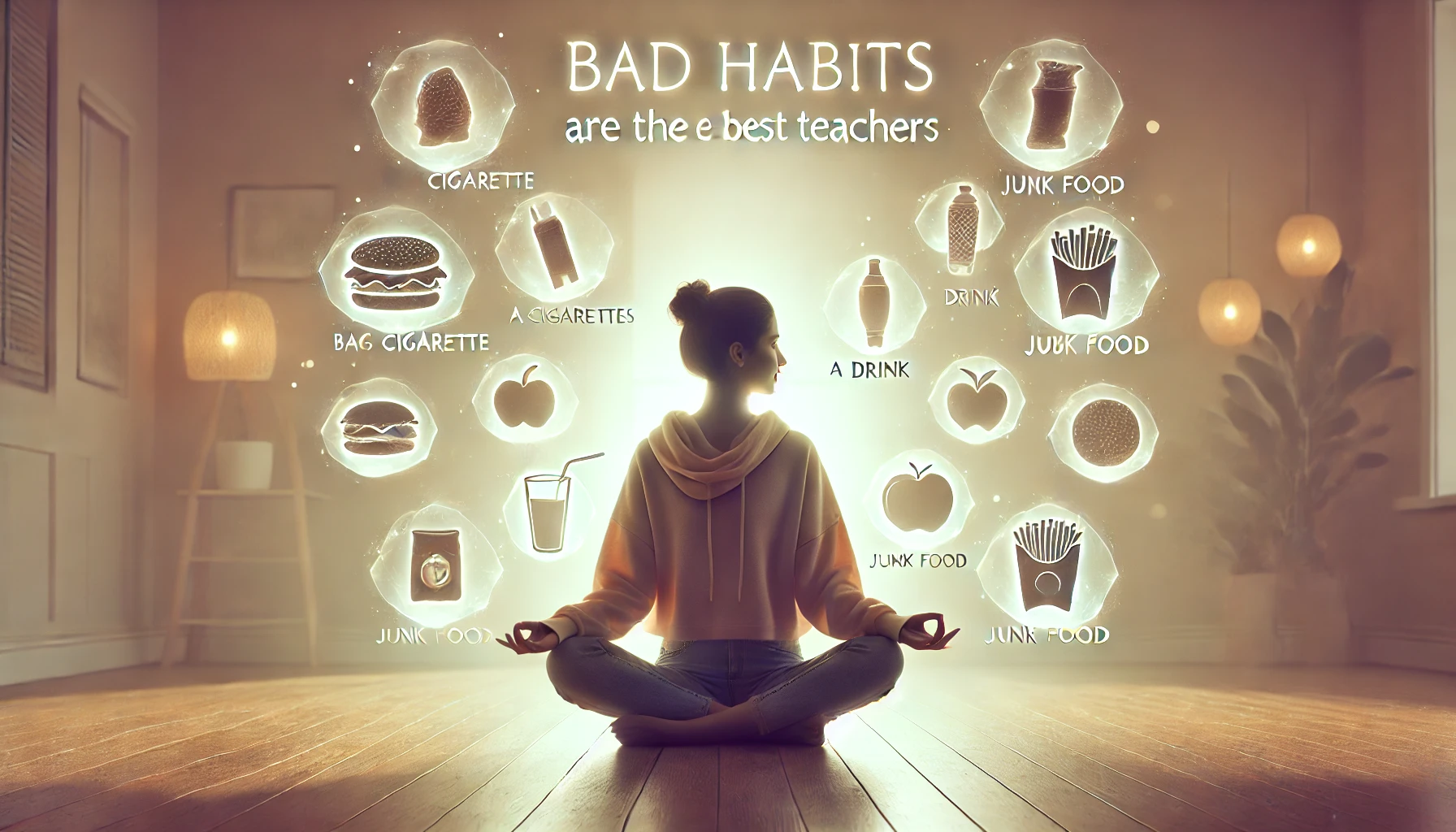

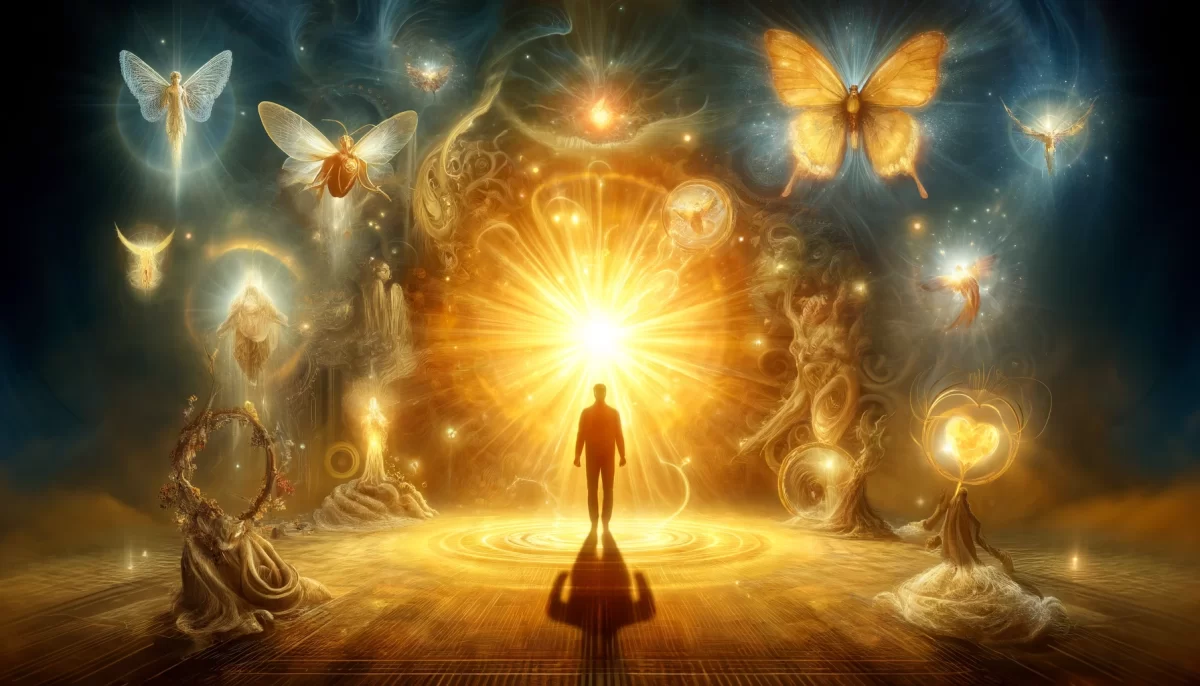
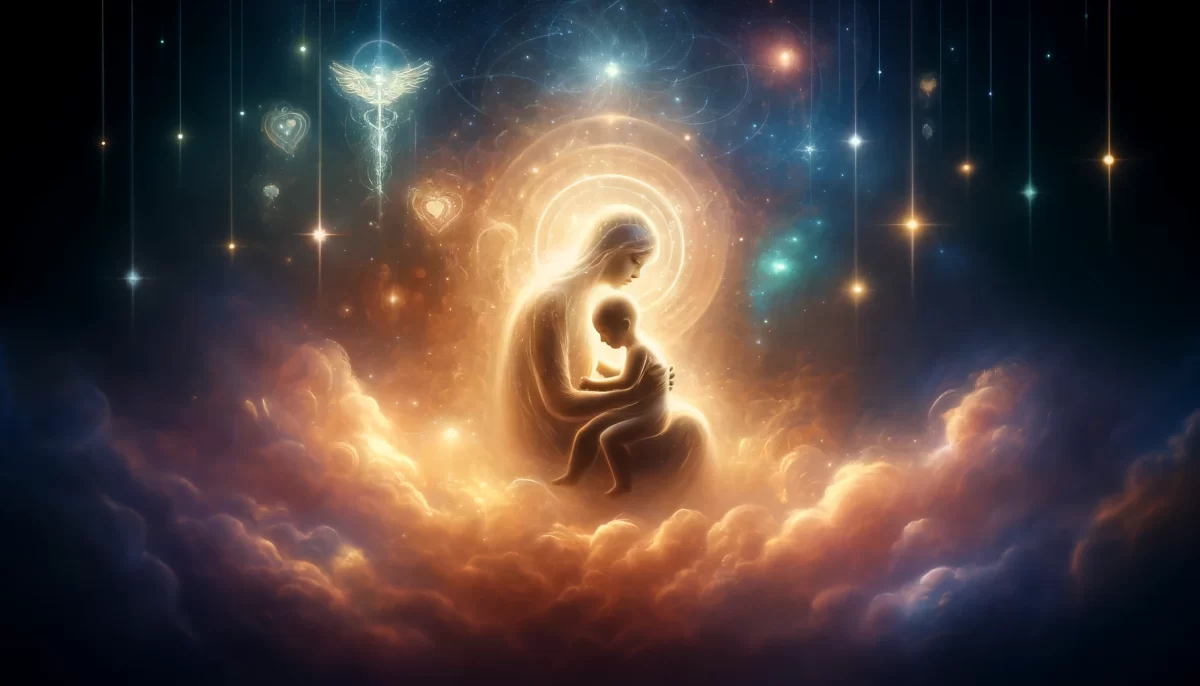
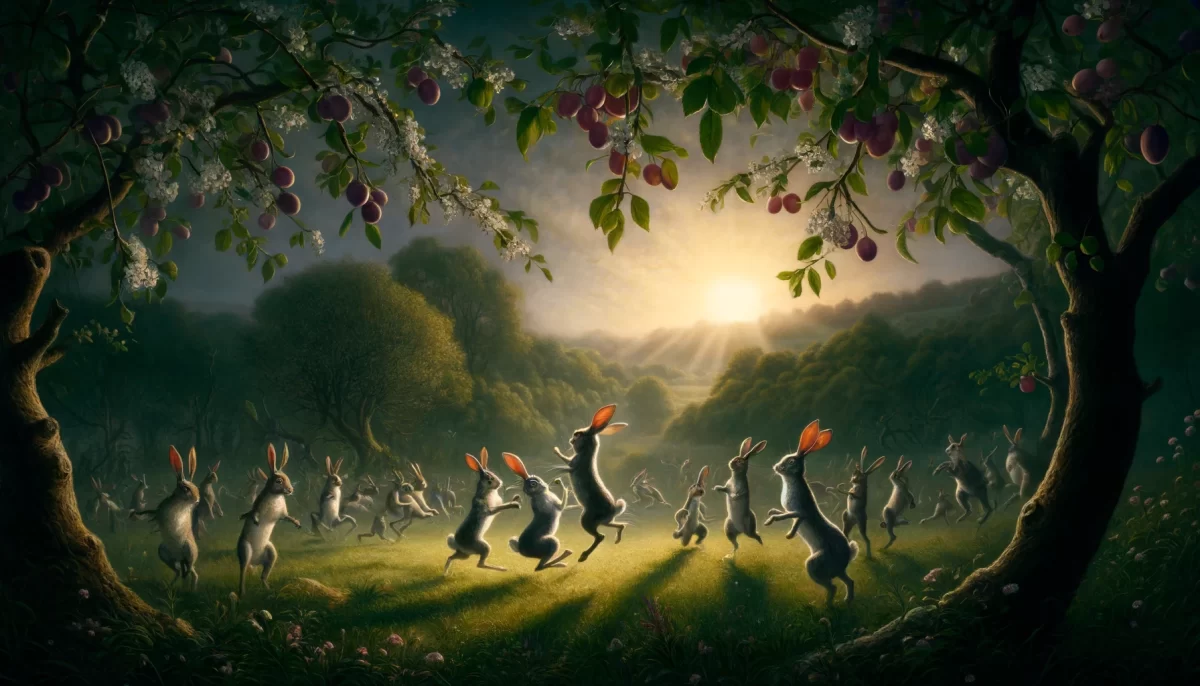
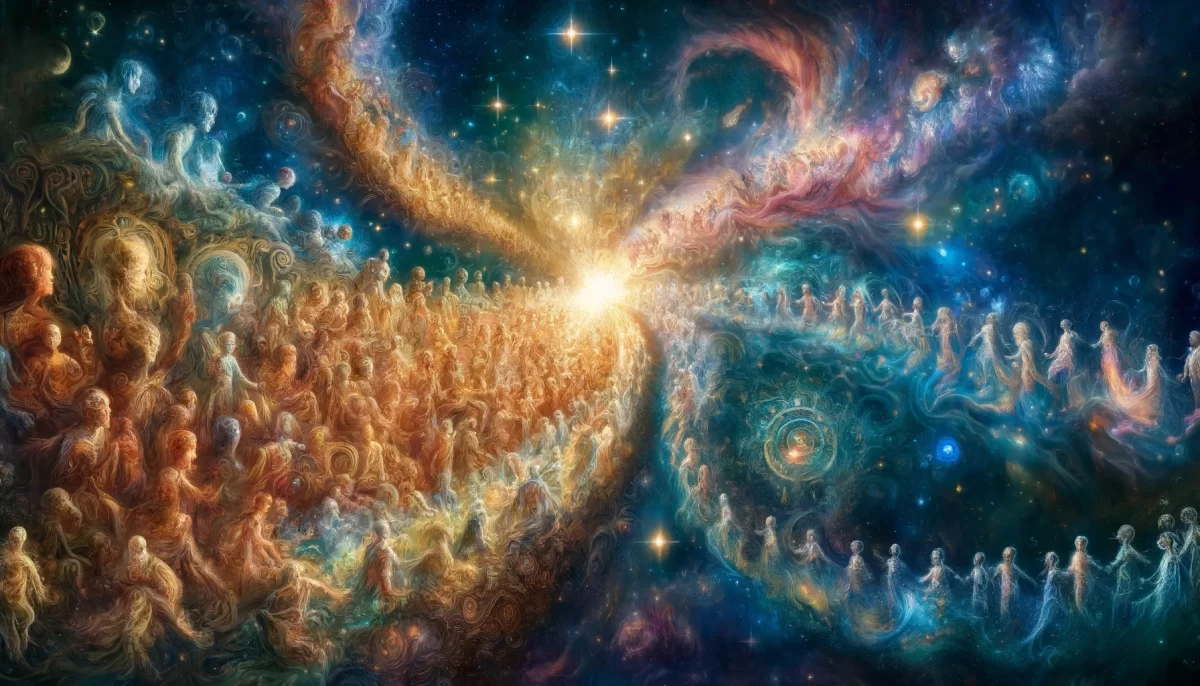
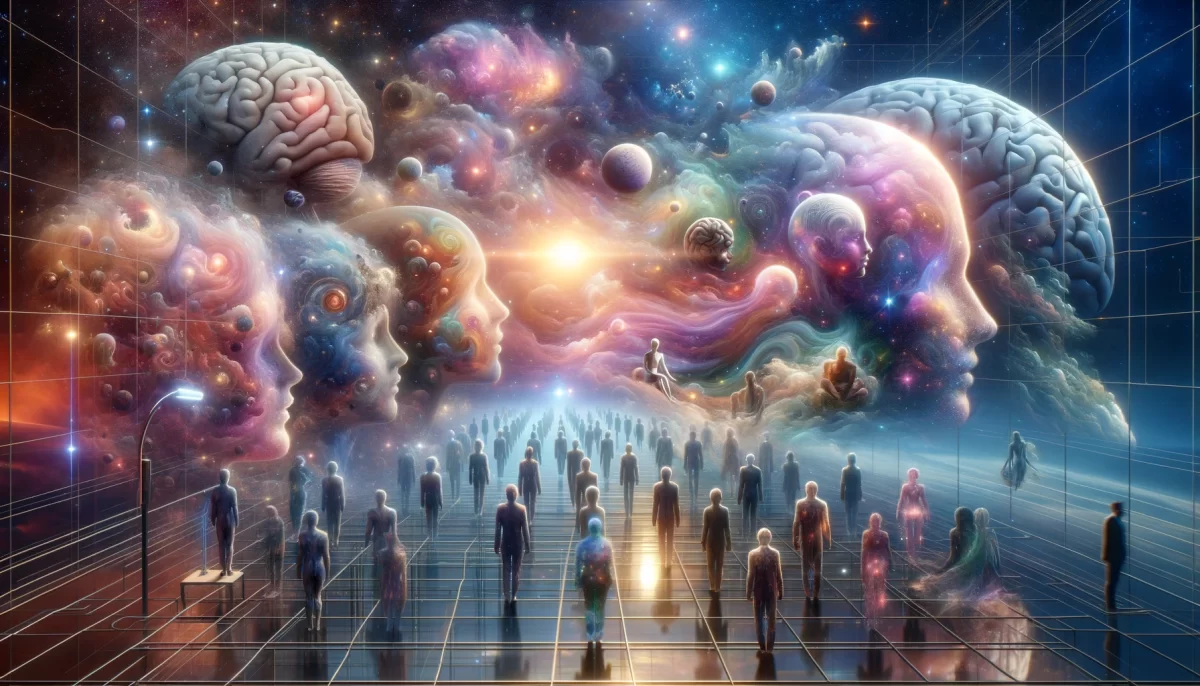



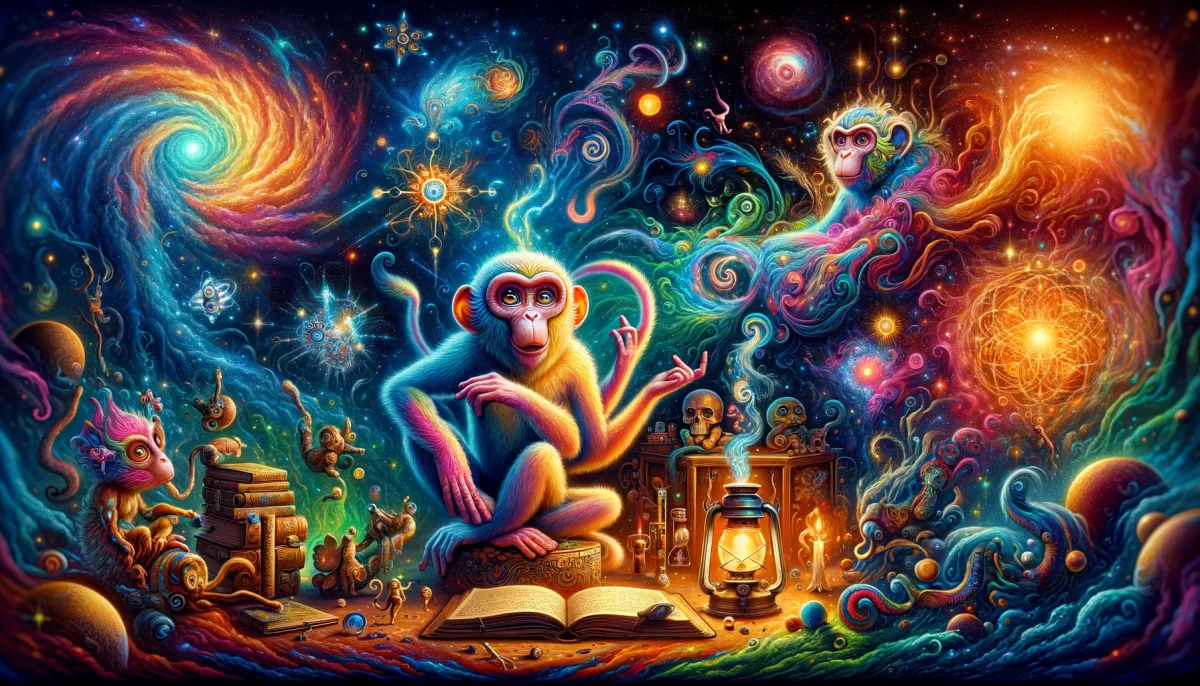




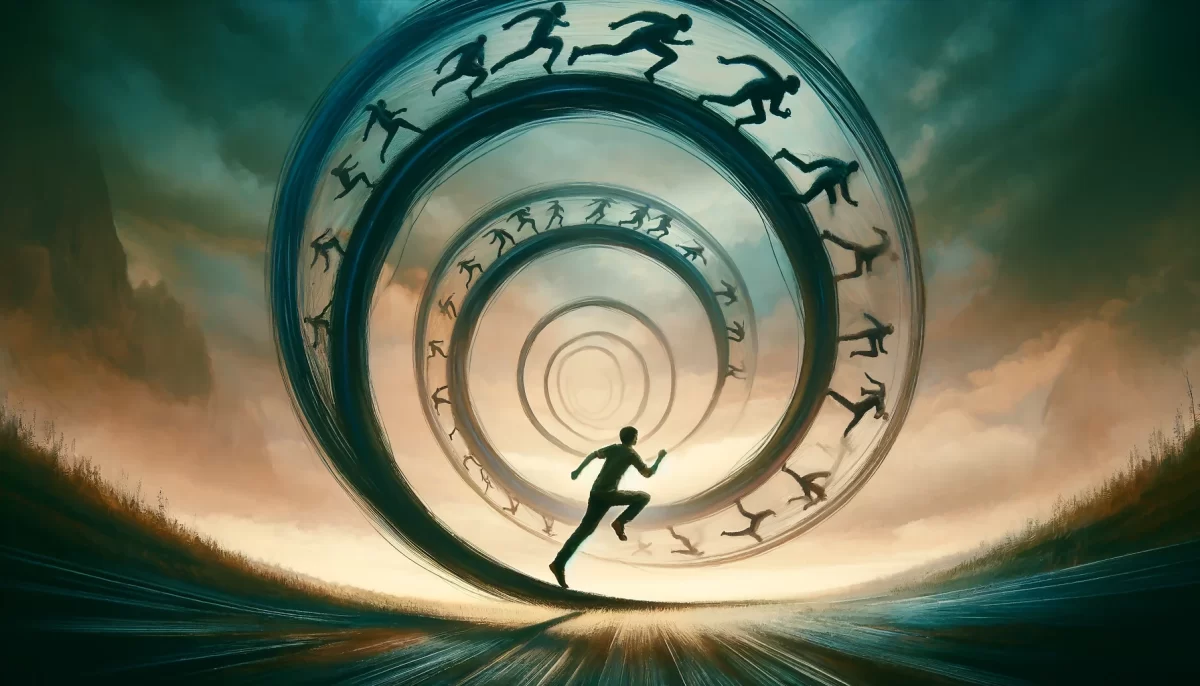
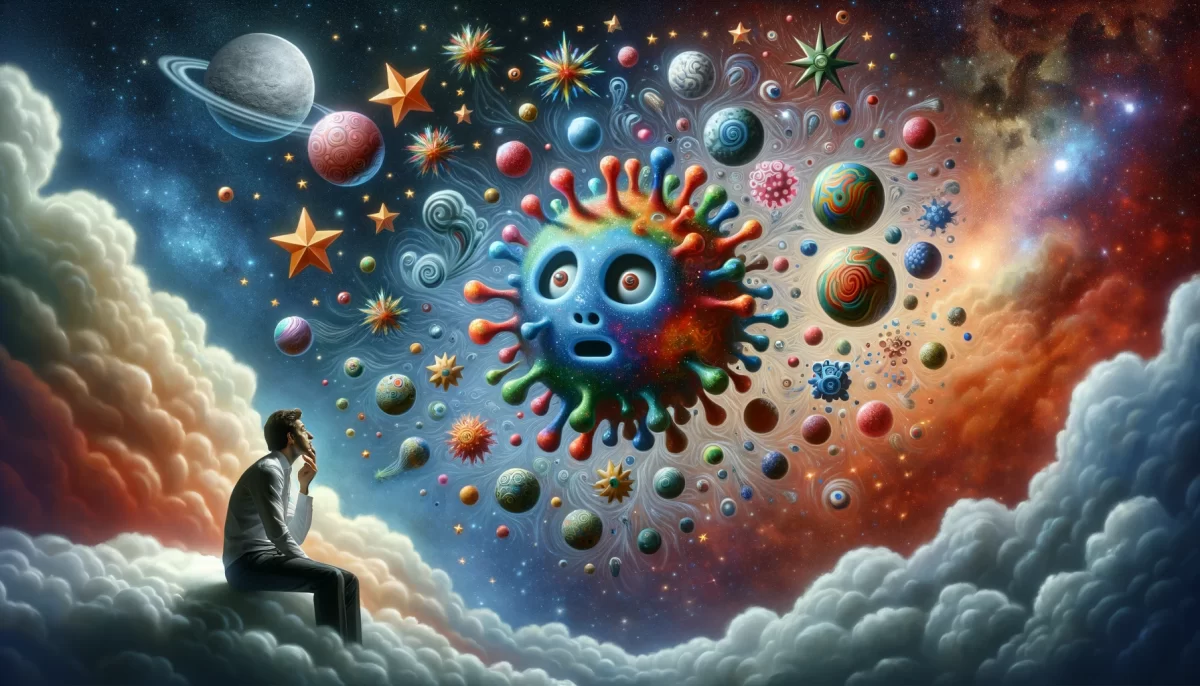


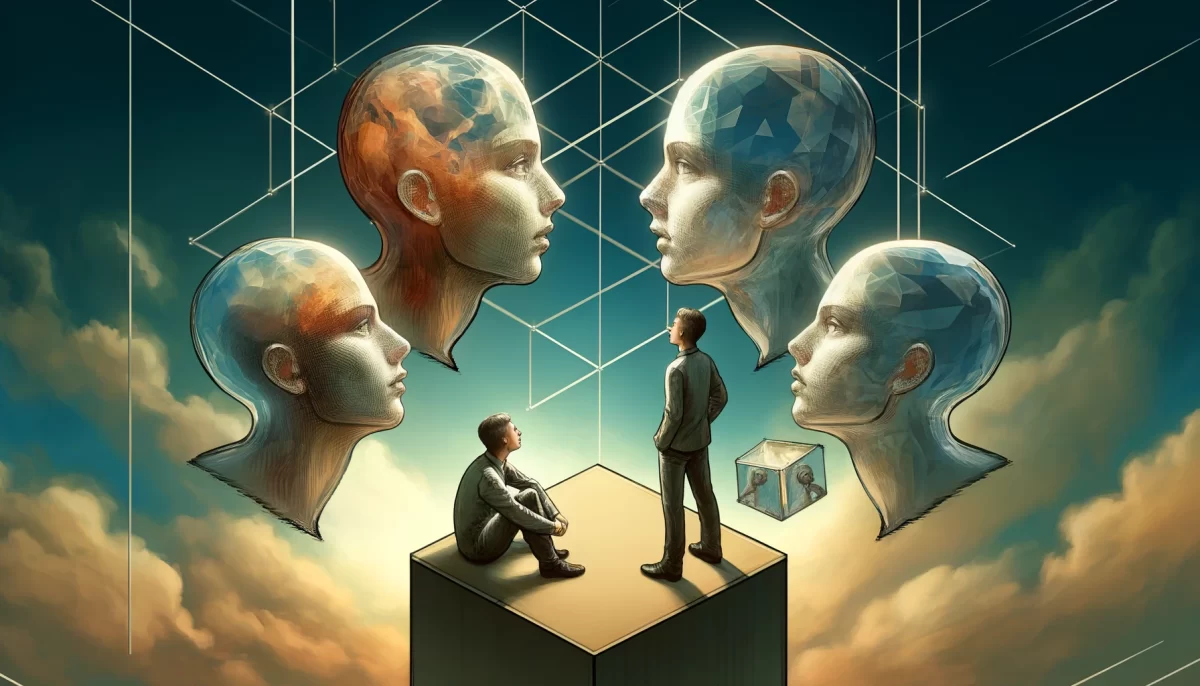
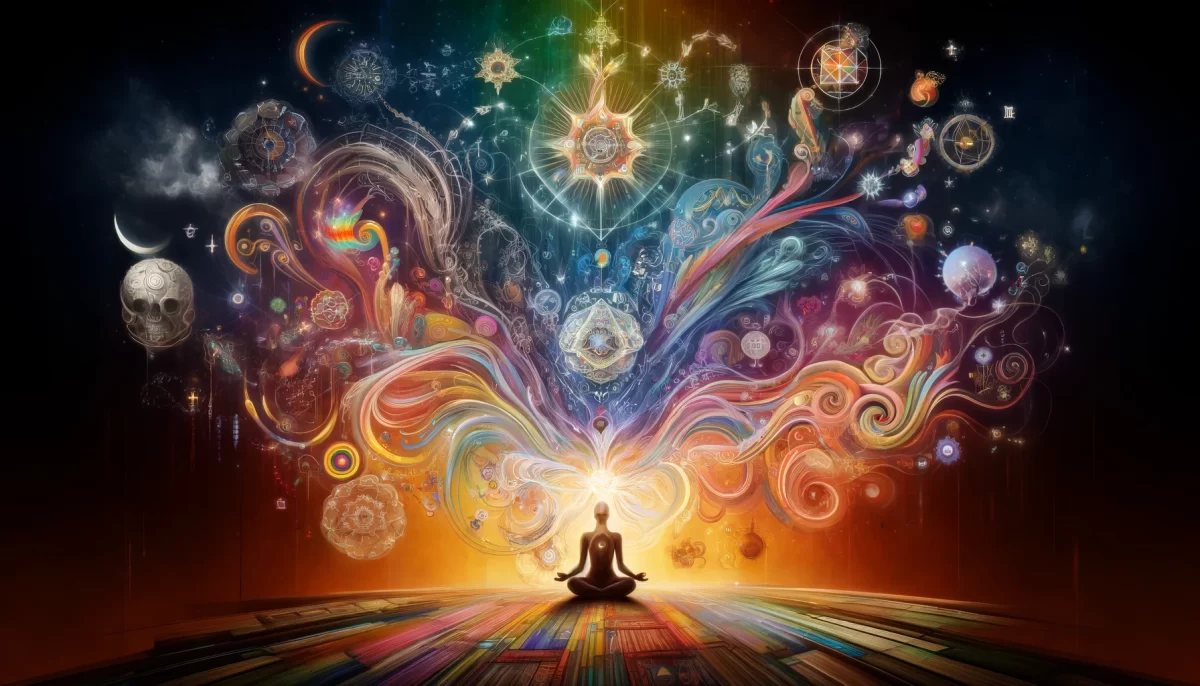
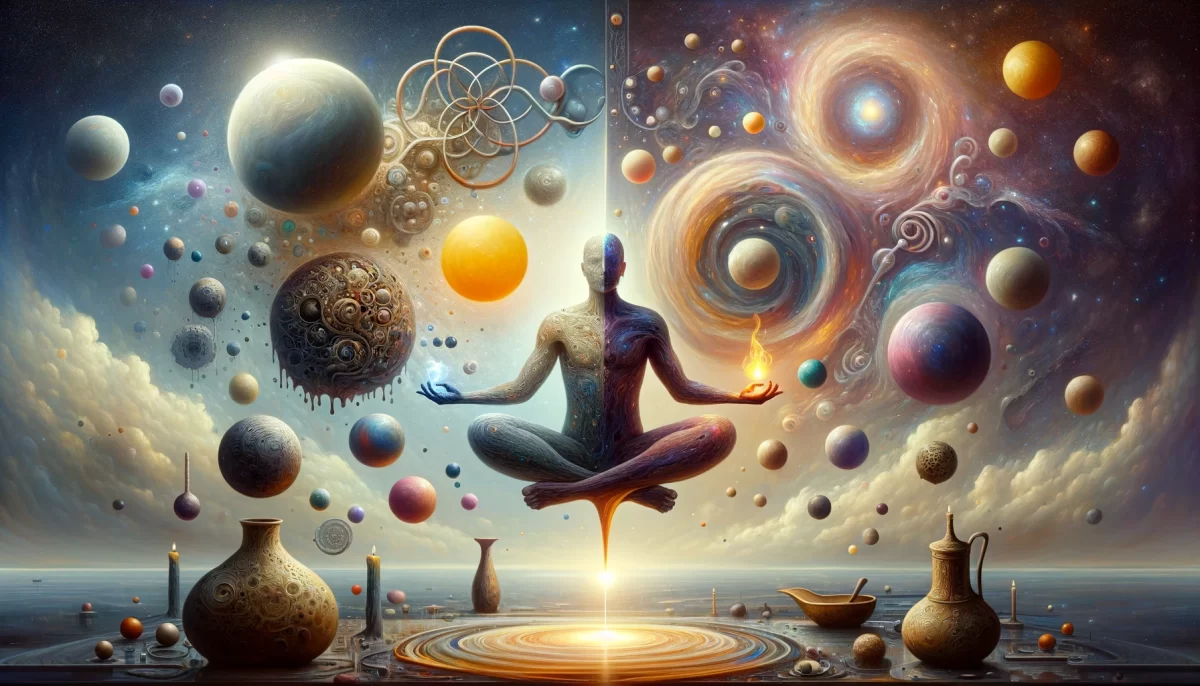






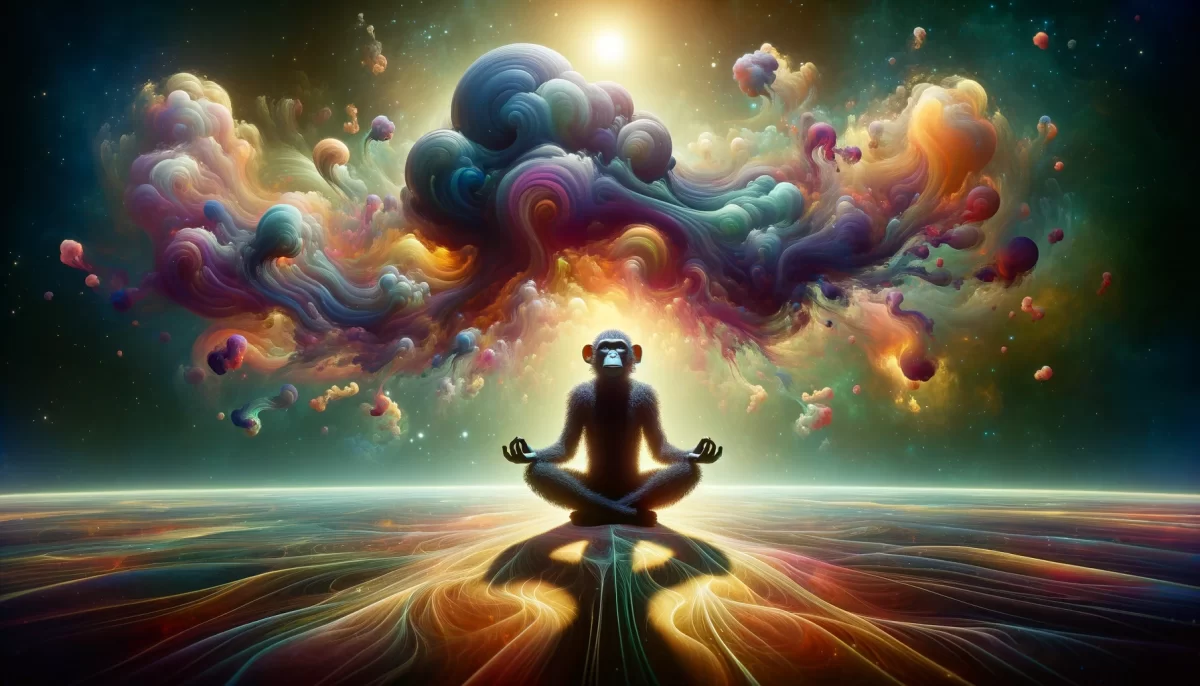


Leave a Reply